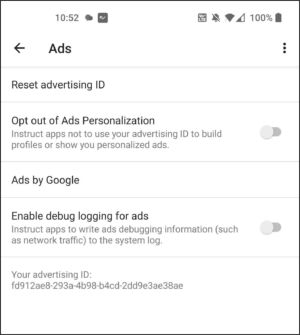
After Apple shook up the advertising industry by requiring users to opt-in to ad tracking in iOS 14.5, Google—the world’s biggest ad company—is announcing a small concession for advertising on Android. Starting in late 2021, Google will begin to roll out a feature that makes Android’s years-old advertising opt-out checkbox less likely to be bypassed by apps.

Android has offered an advertising opt-out option for years, and the interface doesn’t seem to be changing. Buried in the settings (System Settings -> Google -> Ads) is a checkbox allowing you to “opt out of ads personalization.”
Checking the box would “instruct apps not to use your advertising ID,” but with this new change, the checkbox will stop asking apps to not use the advertising ID and will instead show apps “a string of zeros” if they try to access it. The rollout will start affecting apps running on Android 12 devices in late 2021 and will expand to all Google Play services in early 2022.
Google’s advertising change has made headlines around the tech world, but the move probably won’t change a lot. The key factor in iOS 14.5 is that ad personalization is opt-in. A big pop-up appears to ask if you want the app to track you, and you get to pick “yes” or “no.” When asked directly, users have overwhelmingly rejected ad tracking, with one study saying 96 percent of iOS 14.5 users chose to block access to their ad ID. On Android, users won’t be asked directly if they want to be tracked. They will have to know that this checkbox exists and then find it in the settings, almost certainly resulting in dramatically lower usage. Case in point: this “ad personalization” checkbox has been in Android since 2013. I bet you didn’t know about it.
The Google Play Store’s developer policy requires that all advertising SDKs (not just Google’s ad network) use the Android ad ID for ad-tracking purposes. If everyone follows the rules, this checkbox will block ad tracking across all ad networks for apps downloaded from the Play Store, just like it supposedly has been doing for years.
If app-makers followed the rules, though, Google wouldn’t need to make this checkbox more aggressive by passing a string of zeros to apps.
https://arstechnica.com/?p=1769883

